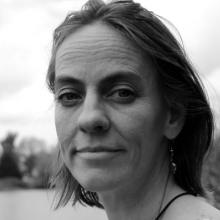Selena Couture
Why did you decide to pursue a graduate degree?
After working for many years as a teacher in alternative schools I felt the need to study, reflect and write. I also believe that one of the most significant unresolved problems in our nation is the treatment of indigenous people. I decided to combine my love of performance and education with my desire to help unsettle and decolonize our world.
Why did you decide to study at UBC?
The Department of Theatre and Film is a vibrant place with expertise regarding Canadian theatre history and postcolonial intercultural performance. I also appreciate the generosity of the Coast Salish peoples in hosting settlers on this land and UBC offers numerous opportunities to work with First Nations people academically. The First Nations Studies historiography and research methodologies courses have been invaluable in developing my project as well as the opportunity to study the Musqueam language, hən'q'əmin'əm'.
What was the best surprise about UBC or life in Vancouver?
I have lived the eastside of Vancouver since 1991 and I hadn't spent a lot of time on UBC campus until I enrolled in courses in 2007. I was surprised by how dedicated the university is to negotiating a respectful relationship with indigenous peoples on whose unceded territory it sits. I've also been very happy to meet intriguing people from all over the world who are working and studying at UBC.
What do you hope to accomplish with your research?
I aim to understand how and why indigenous performance at this site used language and place-names to assert cultural identity in the context of related intercultural settler performances asserting an urban identity for the city of Vancouver. Understanding this history requires exploring not only how indigenous people resisted colonialism, and their means of cultural continuity despite centuries of violence, but also the indigenous ways of transmitting history that do not depend on the colonial archive.
What has winning a major award meant to you?
The award will help to support my family in my final two years while I research and write my dissertation. I will also be able to travel to an international conference on Indigeneity, Performance and Globalization being held in the UK in October 2013. That my research has been considered worthy of this prestigious award also makes me feel hopeful about the future of reconciliation and restitution in our culture.
What advice do you have for new graduate students?
It is very important to take the time to understand the indigenous people on who will be hosting you on their unceded territory. There are numerous opportunities to learn from the Musqueam, Tsleil-Waututh and Squamish peoples. It is important it to venture off UBC campus to explore all the areas of the Lower Mainland and it’s really worth it to bring (or buy) a bike.

